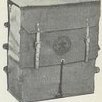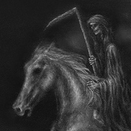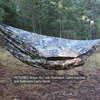Leaderboard
Popular Content
Showing content with the highest reputation on 12/04/19 in all areas
-
I was a UC in several different councils. When I introduced myself to units, the two main reactions were disbelief and suspicion. "I've been a SM for X years and you are the first UC I've met." The well functioning units tolerated me. Some struggling units were quite welcoming, happy to have another adult to go on campouts, talk about things, etc. Other struggling units were quite content to flounder and resented any input. Such is life. As far as actual impact as a UC, I still have my doubts. Moderate to minimal, even on a good day. The commissioner concept is gre4 points
-
How often do we advise a frustrated parent or scouter that their only recourse with a recalcitrant unit is to transfer? That there is no quality control by Council?3 points
-
But let's assume there's some sort of commissioner that has the authority to make changes and the heart to help. Maybe like this neighborhood commissioner. That's a very different position than current commissioners and, with the right person, could help immensely. It gets back to leading as an example for the scouts to see. Instead, we have SMs with big egos because nobody is there to call them on mistakes. It's also a huge responsibility for the commissioner. I'd be up for it.3 points
-
So a few months ago I signed two of my sons up for a "Merit Badge Blitz" run by a nearby troop and advertised by the Council. There was some adult training offered on-location the same day, so I signed up and attended "How to be a Merit Badge Counselor", taught by that troop's Venturing coach. He walked us through all the policies about how the scout (not his parents or leaders) is supposed to ask his Scoutmaster for a blue card and the name of a counselor, how instruction should be individual to each scout and not just a large-group activity, how the scout is responsible for keeping the blue2 points
-
Good point. A place to start would be to define the core areas of the program, and describe what quality looks like at differing levels of competence. This is a different approach than "requirements" which are check-boxes. For example, if we define Uses the Patrol Method as a core area then the levels could be: LVL1. Patrols are created by adults. Patrols are mixed up at events based on attendance. Patrols make no decisions for themselves and rely primarily on adults. LVL2. Patrols are created by scouts with parameters decided by adults. Patrols sometimes stick together but usually n2 points
-
I tell every new Scoutmaster with plans for changing the current culture to support two programs. The young scout program where your change will come from, and the older scout program that basically continues the same program. The human nature of youth 14 and older DON"T LIKE CHANGE" and I have yet to meet a Scoutmaster who successfully converted their older scouts to the new program. Bend a little maybe. Push as much as your willing to tolerate, but don't let the frustration interrupt working the younger scouts. Don't die on this hill, it's not worth it. Help them with their Eagle as much as2 points
-
Noting the Salt Lake Tribune's usual editorial viewpoint, I wonder if the quote is being taken out of context; or if it was a response to a leading question like "out of the two organizations, which one left the other?" Even in the quote, Elder Ballard doesn't specify what the wrong direction was. I was an adult leader at an LDS Encampment (that is, a summer camp week where all troops were LDS, organized into a provisional troop per stake) this summer, and President Owen visited and spoke; earlier that day, he hosted a smaller sort of roundtable with just adult leaders, which I attended.1 point
-
One of the better pieces of advice I've received was - pick a role you like and do it well. Don't try to do three jobs - you'll just end up doing each poorly. Instead, focus on the one you like the best and make it really successful.1 point
-
Sounds like a big endorsement that the people around you think quite highly of you and your efforts. Not to be contrarian, but do take care of yourself. Your family and your personal health should always come before Scouting. If our home lives or health are in shambles, we aren't going to be doing our best for our Scouts.1 point
-
Another aspect of Scouting that fits with this appeal to the epic and heroic is the idea of the uniform of service. No, not food service. Not the uniform of sports or the uniform of parade and ceremony. Rather, a working uniform like the ones that we see on our servant-heroes -- firefighters, police, military, EMTs. The kind of uniform that you have to earn by facing and overcoming challenges. The kind that says, I know how to help you, I know how to do things that ordinary people can't do, you can count on me.1 point
-
The topic is "recruiting for Scouting". If the folks on this eDebate are , as I must assume, of the opinion that Scouting is one of the best opportunities a kid may have , one must consider three things: 1) What is "Scouting" ? What EXACTLY sets this activity apart from , say, 4H, MYF, Boys/Girls Club, school drama club, intermural football, SoccerUSA, etc. ? 2) How would any kid (and his parents?) learn of this "special" opportunity? 3) How can we , old fogies, help with #1 and #2 ? And yet NOT limit #1? Let's get personal. I joined a Cub Scout Pack ,1 point
-
There is much room for meaningful UC leadership/help/ e Explore branch of scouting. Some Post committee/Advisor folk do not have backgrounds in scouting, and do not receive the same support from the general population to the DEs. Some do YP, then proceed not knowing about the 360 page handbook, online training, awards program. Units need to be diverse in their approaches to serve the larger scouting community effectively. I don't thing UCs should be arguing over unit administration unless there are serious violations of protocol. In my view, UCs should be prompting, and reminding unit1 point
-
As a non-Wood Badger, but with 20+ years of scouting experience, just remember that scouts don't know or care about Wood Badge. They only care about what you say and do, and how you treat them. So, use your training wisely, and remember that this journey is not about you, it's about developing tomorrow's leaders.1 point
-
Here's the wording from the printed application (2018 Printing). If someone can point to the change that's causing the uproar, I'd appreciate it. Is it because some of the people who have been registered since the 70's and haven't had a background check since then now do? That doesn't seem like a bad thing.1 point
-
These things don’t magically happen. It takes dedication of many volunteers inside and outside the units at the District level to put on good programs. Yes, our unit has a lot of our own events throughout the year but it is greatly enhanced by broader outings. I could add some districts have talented unit commissions that help out struggling units. If districts and councils don’t matter, then why do certain council areas flourish and over perform in terms of youth participating in scouting and others languish? I don’t believe that is random. I believe when councils and district1 point
-
I'm not aware of any transcript of the above video (other than the one generated by YouTube) but I wouldn't recommend starting there to understand the new program. That video was created to be shown to members of the Church during a Sunday meeting. If you're not familiar with the Church, there's going to be a lot of unfamiliar terms and references. If you want the CliffsNotes on the new program, here it is: 1. There are four program areas: Spiritual, Intellectual, Physical, and Social. 2. Groups (called classes or quorums), families, and individuals create goals and activities i1 point
-
IMHO - this is entirely a youth problem. By now those cross-overs should be either their own patrol with an elected PL or in existing patrols with their established PLs. In other words, they ain't crossovers, they are first-years. It's very simple. In the PLC, ask each PL how many of his boys have not earned scout rank. Then ask why. Then ask what he will do to change that. Then at every PLC ask those same questions until most of those crossovers have advanced. If all of the 1st-years are in one patrol, the other patrols will obviously have near zero who haven't earned scouts a1 point
-
Largely agree with your thoughts. MB universities/colleges/fairs can be structured so that the selection process/choice/approval still happens. Similar to summer camp, if you know the schedule of what is being offered, that is shared to the scouts, and those desiring to attend can make selections from the list of what is available and discuss with their SM what they have selected. If SM deems appropriate, blue card issued, scout goes off to the MBU to work with the counselor. Some may feel that the BSA is implying that MBs are supposed to be one-on-one, scout to MBC- but it does not1 point
-
@RainShine, Even though you didn't say it, I figured your were an SM by the way you asked questions. (... If it talks like a duck ....) To both you and @Treflienne, regarding youth sign-offs, the answer is now is the time to start. The question is how. Here's what we did: We had the first-class scouts and the patrol leaders sit in the circle, and asked them what we should expect from a person who signed off in their book to have seen: An argument that they did this here or that there was not enough. A display of paperwork was not enough. If you saw the scout demonst1 point
-
I'd like our troop to make the transition to youth doing the sign-offs. The question is which scouts and how soon? None of our scouts are first class yet, but different scouts have different skills. Could the scout who did the Pioneering Merit Badge be approved to sign off on the knots? Could the scout who did the Lifesaving Merit Badge be approved to sign off on the swimming? Could the scout who completed the LNT trainer course be approved to sign off the LNT-related requriments? Could scouts who have done the First Aid Merit Badge (or WRFA) be approved to sign off on the fi1 point
-
Just a few thoughts.... See "Guide to Advancement" (G2A) for guidance on this (section 4.2.1.2 is very short, and there are other places in the guide that expand on discussion, or may outline other considerations (such as wrt. merit badges). Allowing youth to sign off can be a good thing, but I wouldn't automatically let anyone of a certain rank or age sign off ---- I'd link it to the Positions of Responsibility so that scouts take responsibility for teaching and for quality. My suggestion would be: JASM, SPL, Instructor, and perhaps Troop Guide. G2A lists PL, but I don't re1 point
-
Theoretically, Webelos 2s/AOLs who Cross Over SHOULD (emphasis) be able to earn Scout after their very first Troop meeting. Here's why.1 point
-
Going by the Guide to Advancement, blue cards are still the nationally recognized standard for the merit badge record (7.0.0.2 About the Application for Merit Badge (“Blue Card”)). Councils can request a different process for large events (not sure how many councils actually make these requests or if they just do it on their own). From what I have heard, some councils really scrutinize the blue cards at Eagle BOR time, while others just go by what is in the database (ScoutNet / Scoutbook). So I guess the answer depends on which council you are in, and could change based on the people involv1 point
-
I think it's entirely dependant on how each course is presented and how invested the boys are in the programming. When I was young, our district would put on a few MB days a year as fundraisers. Seating was limited to 8 boys a course (effectively a MB 'patrol'), and course teachers were highly qualified in their fields. Courses were also taught on-site; for example, I earned the Atomic Energy MB at the San Onofre Nuclear Power Plant, and my MB Counsellor was an actual nuclear scientist who took us through the entire facility. It being an hour's drive away, we had to work out our own tran1 point
-
Welcome to the forums! To the first question: it depends. To the second question: it depends. No MBU is identical to another. If the objective of self-reliance is undermined, you are correct. If the event helps scouts be more self-reliant you are on base. The justification for an MBU is simple: it introduces a scout to someone deemed most qualified to counsel that badge. Take, for example, motorboating. You might have a dad in your troop who takes his boat out once a month, or you might have a retired grandparent who built or tested racing hulls, or you might have the captain of1 point
















